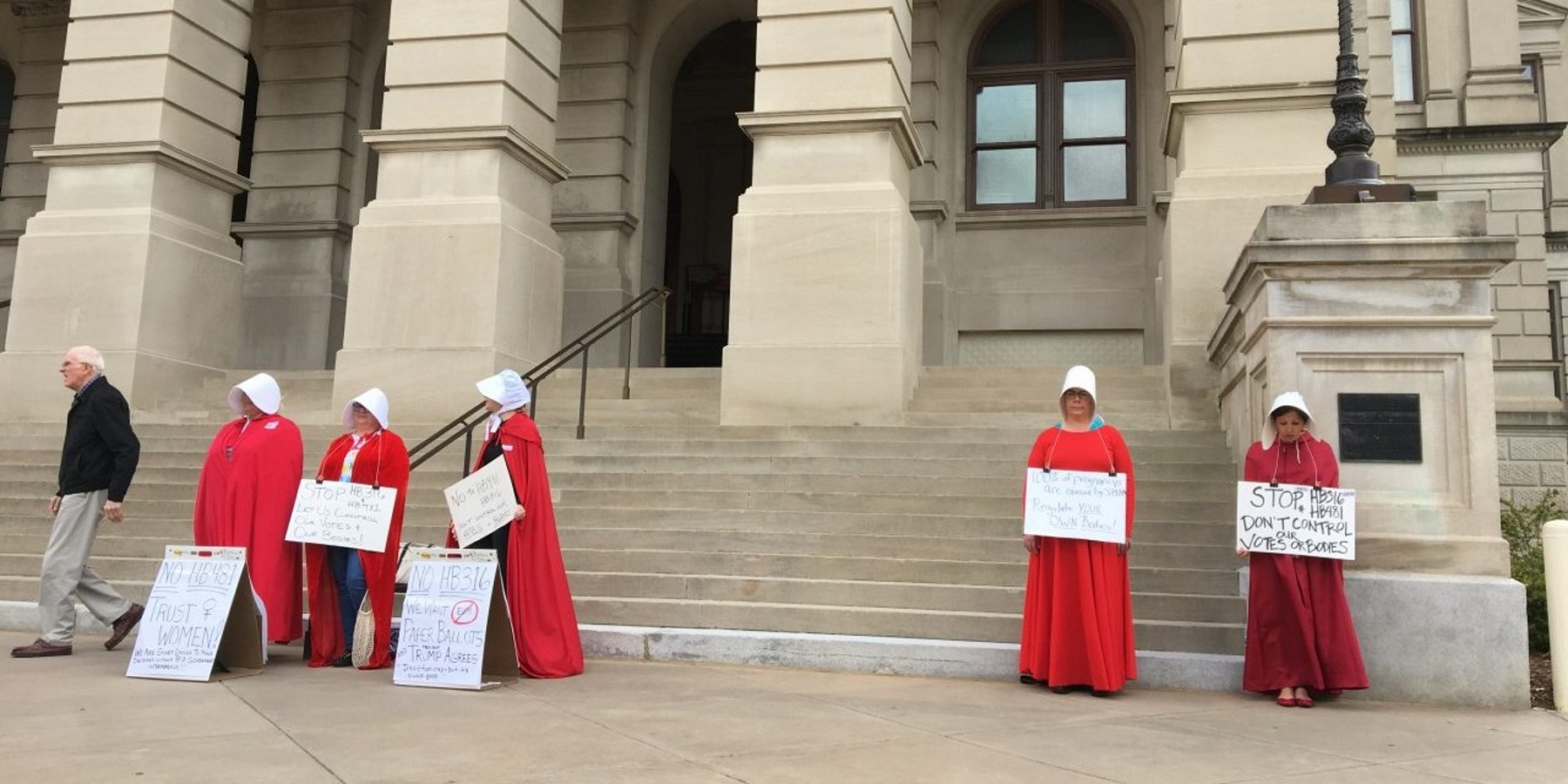Amid protests and a heavy police presence, the Georgia Senate on Friday passed a bill banning almost all abortions after a heartbeat can be detected.
The bill, backed by Republican Gov. Brian Kemp, passed on a 34-18 party-line vote and would be one of the nation’s strictest anti-abortion measures if it becomes law and is not blocked in court battles. It will now go back to the House to approve Senate changes, where it’s expected to pass again.
Women in Georgia can currently seek an abortion during the first 20 weeks of a pregnancy. A heartbeat can be detected in an embryo as early as six weeks into pregnancy, before many women know they’re pregnant.
Georgia lawmakers and GOP-led legislatures in several other states have pushed anti-abortion measures in hopes of getting a case before the U.S. Supreme Court to challenge its 1973 Roe v. Wade ruling that legalized abortion nationwide. The push comes amid rising optimism among conservatives that the restrictions might prevail in the reconfigured high court that includes President Donald Trump appointees Neil Gorsuch and Brett Kavanaugh.
Andrea Young, the executive director of the ACLU of Georgia, said in an interview Friday that the group would challenge the heartbeat abortion ban in court if it’s signed into law.
Young called the legislation “clearly unconstitutional” and said that it “flies in the face of 50 years of legal precedent.”
Several Republican senators, most of them men, spoke in favor of the bill, while several Democratic senators, most of them women, argued against it.
Many Republican lawmakers in favor of the legislation outlined their position in religious terms.
“There are many scriptures that make it clear to me that God knew us and had a plan for us when we were still in our mother’s womb,” said Republican Sen. Greg Kirk. “The word abortion is not going to be found in the Bible.”
Democratic Sen. Valencia Seay took issue with that line of reasoning, saying lawmakers were letting their “personal religious beliefs dictate everyone else’s ability to have a choice.”
Republican Sen. Greg Dolezal, speaking in favor of the legislation, said that every life is a miracle.
“I don’t know how many of us are in this room right now, probably 200, but I am looking at 200 miracles,” Dolezal said. He then began to look around the chamber. “Senator, you are a miracle. Senator, you are a miracle,” then up to the balcony, “Sir, you’re a miracle. Ma’am, you’re a miracle.”
Democratic Sen. Jen Jordan, questioned whether the standard being contemplated by the legislation was actually a human heartbeat.
“Every physician has said that the fetal cardiac activity present early in pregnancies is not a beating heart, and no matter how many times you say it, no matter what you call this bill, it does not make it so,” she said.
A large group of women at the Georgia Capitol protested the bill dressed as characters from “The Handmaid’s Tale,” which depicts a dystopian future where women are controlled by the government and forced to breed. The activists in red cloaks and white bonnets have been an almost daily presence ever since the House passed the measure earlier this month.
A smaller contingent of anti-abortion advocates held signs and urged lawmakers to pass the bill.
Debate took place amid heavy security. Over two dozen Georgia State Patrol cars flanked the Capitol building and as many troopers stood watch inside.
During public testimony last week, several physicians and physician groups came out against the bill, saying it contained medical inaccuracies and would worsen health care for women in Georgia, a state that already has one of the worst maternal mortality rates in the country.
Two influential groups, the Medical Association of Georgia and the Georgia Academy of Family Physicians, sent letters to lawmakers opposing the legislation.
GOP lawmakers in Tennessee, Florida, South Carolina and Ohio are pursuing similar legislation, while Republican governors in Mississippi and Kentucky have recently signed so-called heartbeat abortion bans.
Mississippi Gov. Phil Bryant on Thursday signed a ban, despite a federal judge’s ruling last year that struck down a less-restrictive law limiting abortions there.
Kentucky’s law was temporarily blocked by a federal judge shortly after Republican Gov. Matt Bevin signed it on March 14, in response to a challenge by the ACLU.
A state judge found Iowa’s “heartbeat” abortion ban to be unconstitutional in January.
The Georgia bill makes exceptions in the case of rape and incest — but only when the woman files a police report first — and to save the life of the mother. It also allows for abortions when a fetus is determined to be not compatible with life due to serious medical issues.
If signed, the law would take effect January 1, 2020.
Gov. Kemp said in a statement Friday that he looked “forward to working with the House to ensure this legislation’s final passage in the coming days.”









